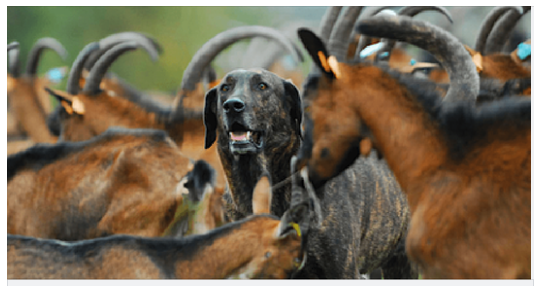Online Course
The Genetics of Behavior & Performance
|
Instructor
|
Class Starts 7 July 2023 $125
Sign me up! |
How has instinct been molded by selection into herding ability and retrieving? Is aggression genetic, and can you breed for more in a guard dog and less in a pet? What makes a great agility dog, mentally and physically, and can you breed a better one? How do you predictably produce a great guide dog for the blind? Can you breed for intelligence, work ethic, and the ability to interpret directions? What about detection dogs - mines, drugs, seizures - can you improve these traits with selective breeding? Can we use DNA technology to assess at birth the traits a dog will have as an adult?
Many traits are a combination of genetics and environment. Understanding this can allow you to select for the traits you want more efficiently and not waste time trying to select for something that isn't genetic. In this class we will learn about how the heritability of a trait is determined, how that information can be used to better understand the capabilities of dogs, and how breeders can take advantage of this information when breeding for particular traits.
Many traits are a combination of genetics and environment. Understanding this can allow you to select for the traits you want more efficiently and not waste time trying to select for something that isn't genetic. In this class we will learn about how the heritability of a trait is determined, how that information can be used to better understand the capabilities of dogs, and how breeders can take advantage of this information when breeding for particular traits.
|
TOPICS
The role of genetics in domestication - how did dogs become domesticated? - how did selection for behavior affect anatomy? Heritability of behavior - is it nature? nuture? How can you tell? - the roles of genetics and environment Genetics of behavioral traits, for example: - playfulness, friendliness - aggression, fear, anxiety - soft / hard temperament - guarding, hunting, prey drive - bidability - shyness, compulsive behavior Genetics of performance traits, for example: - physiological (e.g, tracking, mine detection) - instinctive traits (e.g., hunting, herding) - intelligence - work ethic (e.g., service dogs) - working ability (e.g.,sled dog speed, endurance) - high altitude tolerance Breeding for behavior and performance - using science to breed better dogs |
COURSE INFO
What is this course about?
We will learn about the part genetics plays in the behavior and performance in dogs, and how you can use this information in a breeding program. NOTE: This is a course about genetics, not canine behavior. How long, how much? The course is approximately 10 weeks; fee is $125. How much time will it take?
Generally there will be 3-5 hours of reading and homework exercises each week. How will we meet? This course is online, and you will have access to the course materials, the discussion group, and the instructor via the internet. We have students from all over the world, so there are no scheduled times to meet. New material is posted each week, and you work on your own schedule. We will have a private Facebook Group where we can discuss and ask questions, and the course material will be on our teaching website, available 24/7. What do we need? Reading materials and exercises will be supplied. There is no book. |


